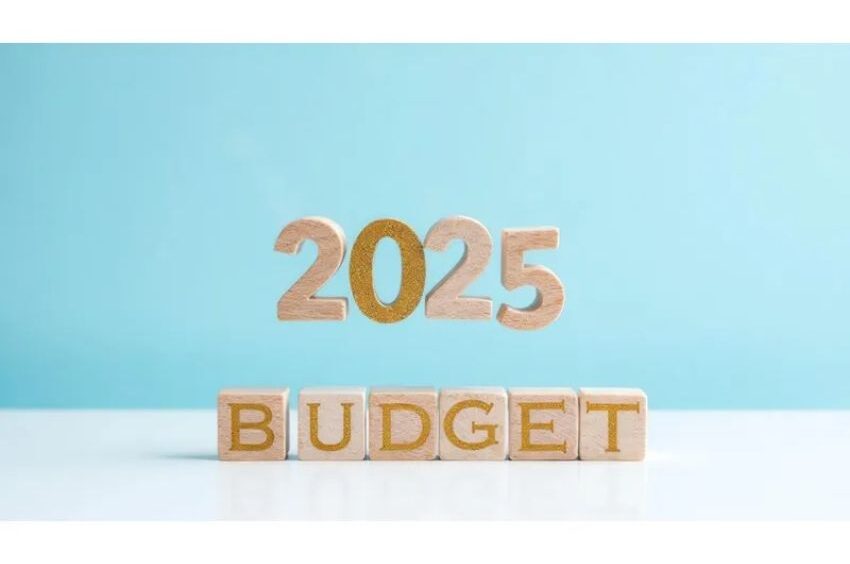Budget 2025 Gives Impetus To Climate-resilient Growth In India

By embracing sustainable practices, India can achieve its dual goals of economic growth and environmental conservation, setting a benchmark for responsible development in the global arena
Byline: Viral Thakker, Sustainability Partner and Climate Leader of Deloitte South Asia
The Union Budget 2025, presented by Finance Minister Nirmala Sitharaman, marks a significant step toward India’s transition to a sustainable, low-carbon economy. With a focus on decarbonisation, clean energy, urban resilience, and sustainable infrastructure, this year’s budget sets the stage for a greener, more resilient India.
Decarbonisation and The Energy Transition
The budget emphasises decarbonisation, particularly through a push within the energy sector. A major highlight is the government’s commitment to developing 100 gigawatt (GW) of nuclear energy capacity by 2047, which will contribute to reducing India’s carbon footprint. The allocation of Rs 20,000 crore for Small Modular Reactors (SMRs) is a key step in diversifying India’s energy mix, reducing reliance on fossil fuels, and supporting a low-carbon future. This energy shift complements ongoing efforts to implement power sector reforms and improve electricity distribution, which together will enhance energy efficiency and align with India’s broader climate objectives.
Boosting Green Manufacturing
A key highlight of the budget was the announcement of a National Manufacturing Mission to boost clean tech adoption, which will mark an increase in the domestic production of solar PV cells, EV batteries, and wind turbines. This will reduce reliance on imports and strengthen India’s position in the global clean energy market, supporting the nation’s goal of achieving 500 GW of renewable energy capacity by 2030. These initiatives combined will drive innovation, support industrial growth, and enhance India’s competitiveness. The budget also prioritises sustainable infrastructure, particularly the development of electric vehicle (EV) infrastructure; this will enable India’s transition to a greener economy and position the country as a global leader in green mobility.
Support for Micro, Small, and Medium Enterprises (MSMEs)
Priority has been given to empowering MSMEs, which are crucial to India’s clean tech and energy transition. Enhanced credit guarantees will help provide access to capital for technological upgrades and energy-efficient technologies. The clean tech mission will support MSMEs in manufacturing green technologies, bringing in innovation and aligning with sustainability goals. A new fund of funds for clean tech startups will further drive innovation and growth in sustainable industries, positioning MSMEs as key players in India’s low-carbon transition.
Strengthening Urban Resilience
Urban resilience takes center stage with the announcement of the Urban Challenge Fund, valued at around Rs 1 lakh crore. This initiative will help transform India’s urban infrastructure by supporting sustainable redevelopment projects, especially in terms of water and sanitation systems. Focused on public-private partnerships (PPPs), it will offer up to 25 per cent funding for viable urban initiatives (bankable projects), ensuring that cities develop in an environmentally conscious manner. In addition, the establishment of a National Spatial Mission will support streamlining of India’s land records and infrastructure planning, enabling smarter urban development. It will lay the foundation for capturing geospatial infrastructure and data, supporting effective resource management and facilitate evidence-based decision making.
Improving Productivity of Agriculture and Allied Sectors
The budget also prioritises agricultural resilience for long-term food security, with initiatives like the Pradhan Mantri Dhan Dhanya Krishi Yojana that will help boost productivity, improve irrigation, and expand post-harvest infrastructure, enabling farmers to adapt to climate change. Strengthening Farmer Producer Organisations and raising the Kisan Credit Card limit to ₹5 lakh will help farmers, including fishermen and dairy farmers, promote sustainable practices and bring financial stability.
Emphasis has also been given to sustainable fisheries, with the goal of developing a framework to manage fisheries within India’s exclusive economic zones, particularly in the Andaman and Nicobar Islands and Lakshadweep. This will help contribute to the preservation of marine ecosystems while augmenting local livelihoods.
Water Conservation
In line with water conservation efforts, the Jal Jeevan Mission has been extended with the goal of providing tap water access to all rural households by 2028. This extended commitment highlights the government’s focus on water security, ensuring clean water access for rural populations.
Circular Economy Push
The budget also underscores the importance of transitioning towards a circular economy, with measures aimed at reducing waste, improving resource efficiency, and promoting recycling industries. The Shipbuilding Financial Assistance Policy will be revamped and focus on the inclusion of larger ships as well to promote a conducive ecosystem.
Overall, the Union Budget 2025 reflects a comprehensive approach to sustainable development, integrating environmental considerations into economic planning. As we move forward, it is imperative for businesses, policymakers, and stakeholders to collaborate in implementing these initiatives effectively. By embracing sustainable practices, India can achieve its dual goals of economic growth and environmental conservation, setting a benchmark for responsible development in the global arena.




























































































































































































































































































































































































































































































































































































































































































































































































































































































































































































































































































































































































